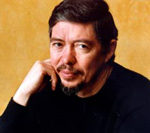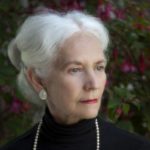Composition’s Major Question
From composition’s beginnings at Harvard University in 1885, the answer to the question, “What is the purpose of a first-year/introductory writing course?” has proved nearly impossible to answer. But, why? According to Dr. Louise Phelps, the trajectory of composition has not followed “a straight line.” So, the history of the question (and any subsequent attempts at answers) is very complicated, tied to the history of the English Department itself, and involves a long history of argumentation. In order to understand the trajectory of this question, one must first understand the history of arguments surrounding this question, and how it breaks down to what and how it should be taught in composition courses.
Many scholars have explored the intricate history of English, such as Alfred Kitzhaber, Ben Nelms, and David Russell. In Arthur Applebee’s text, Tradition and Reform in the Teaching of English, he states, “The

http://www.albany.edu/etap/Arthur_Applebee.php
Harvard model was quickly followed by other colleges and universities; it offered an easy way to recognize literary studies without raising difficult questions about standards and methods: the subject tested would be composition, not literature” (30). Therefore, when composition courses first emerged, literature was the subject matter. At this point, first-year writing/introductory writing courses were called Freshman English.
During the 1960’s, the question of the purpose was pushed through the lens of pedagogy, as if understanding the methods of teaching the course defined its purpose. As Faigley asserts, “early studies of composing issues typically were isolated pedagogical experiments” (528). From 1957-1966, a more traditional approach developed in composition, entitled the “New English”. In reference to this approach, Parker asserts, “So Arthur Applebee is right, I think, in naming this a period of tradition, of moving back towards an old academic model of English, despite the “new” grammars and “new” rhetorics” (36). The Dartmouth Conference in 1976 challenged this view greatly by insinuating that “[the student’s] own abilities become intrinsic to the knowledge being grasped” (Parker 36). Other competing views from the 1960s included the Expressivist View (Peter Elbow as a leading proponent) and the Cognitive

https://english.stanford.edu/people/andrea-lunsford
View (including work by Andrea Lunsford). The 1980’s brought the Social View (Patricia Bizzell), using Bruffee’s idea of the “social construction of knowledge” (Lauer 121) and addition of cultural studies in the 1990’s.
Currently, compositionists have sought to answer the question of purpose by looking at the functionality of the writing course within the greater scope of the university itself. Despite research to the contrary, first-year/introductory writing courses are tasked with preparing students for all the writing situations they’ll ever encounter (throughout college and/or beyond). This is where writing about writing (WaW) and teaching to transfer (TFT) come in. As Wardle and Downs assert, “we see our field as having both declarative and procedural knowledge about writing that can and should be conveyed directly to students, so that they are empowered by knowing about the nature and workings of the activity itself and can act from their knowledge instead of having writing done to them.” In other words, the current objective is to teach students how writing works, with the idea that this knowledge will help them in later writing situations/encounters. However, as Fraizer notes, WaW is helpful to some students and to the field of Composition, “but may not be as important for some students as developing their own writing process and then adapting that process to the actual, evolving requirements of new forms of academic writing” (53-54). And thus, the argument continues.
Despite this seemingly “clean” historical view of the question of FYC’s purpose, the understanding of composition’s purpose occurred simultaneously with the changes to English Studies itself. It intertwined messily with shifts in literature studies and the development and redevelopment of the English Department, as addressed by many scholars, such as William Riley Parker. However, as the compositionist scholars continue their research on understanding the purpose of the FYCs, the question scholars can’t ultimately answer is “why,” as in, “Why do we teach what we teach?” Is it for access, a gatekeeper, prepare for the university, or life, in general? Ultimately, what this question reveals is that, though what and how to teach composition is a constant argument, the why (another “sub-question” of the primary question) is not answerable as it is a value question. Does the university value civic engagement, personal growth, or the workforce? Is its emphasis on the university as research and the student as knowledge-maker? As these are compatible values, the answer could be all of these or none of these. It all just depends on the institution.
Works Cited
Applebee, Arthur N. “The Birth of a Subject.” Tradition and Reform in the Teaching of English: A History. National Council of Teachers of English, Urbana, Ill. 21-44. Web.
Faigley, Lester. “Competing Theories of Process: A Critique and a Proposal.” College English 48.6 (1986): 527-42. Web.
Fraizer, Dan. “First Steps Beyond First Year: Coaching Transfer After FYC.” WPA: Writing Program Administration, 33.3, (Spring 2010), 24-57. Council of Writing Program Administrators. PDF.
Lauer, Janice M. “Rhetoric and Composition.” English Studies: An Introduction to the Discipline(s). Bruce McComiskey, ed. Urbana, IL: NCTE, 2006. Print. 106-152.
Parker, Jr., Robert, “From Sputnik to Dartmouth: Trends in the Teaching of Composition.” The English Journal, 68.6 (Sep., 1979), 32-37. Web.
Phelps, Louise Wetherbee. Personal Interview. 5 October 2016.
Wardle, Elizabeth and Doug Downs. “Reflecting Back and Looking Forward: Revisiting Teaching about Writing, Righting Misconceptions Five Years On.” Composition Forum 27, Spring 2013. Web.
